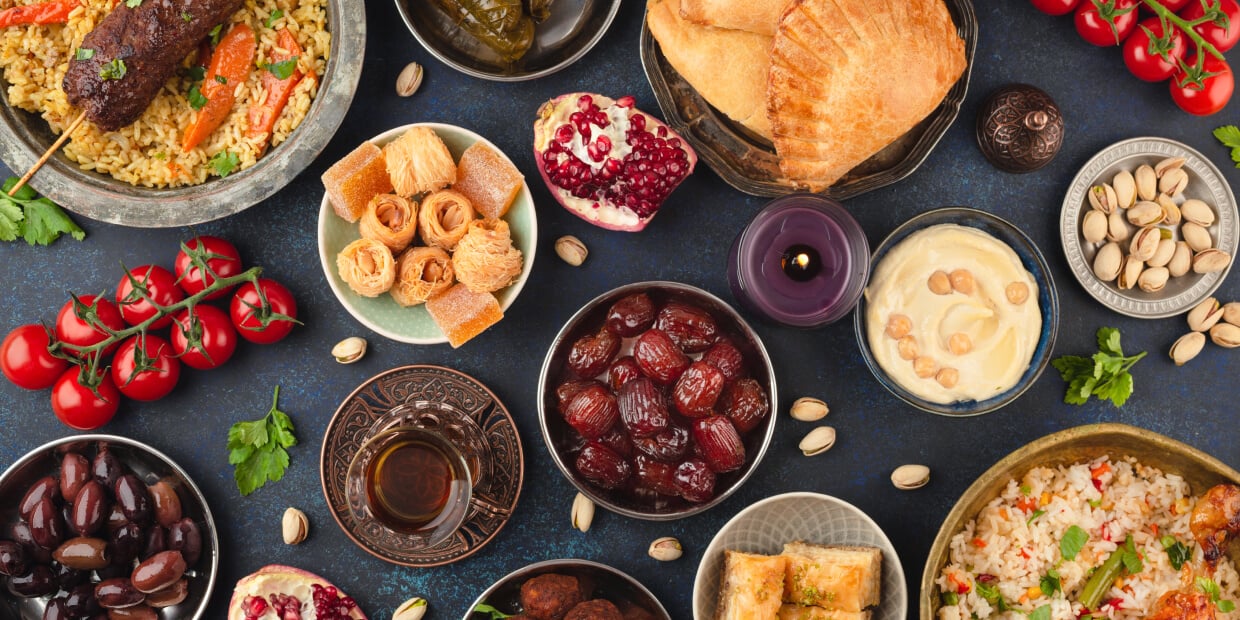The Invisible Thread: How Halal Food Catering Services Connect Communities Through Culinary Tradition

The search for reliable halal food catering services begins with an understanding that food serves purposes far beyond mere sustenance—it carries meaning, memory, and cultural identity across the invisible bridges that connect us to our heritage. In Singapore’s multicultural landscape, where celebrations intertwine religious observance with joyful gatherings, the catering of halal food becomes not merely a service but a cultural stewardship.
The Quiet Guardians of Tradition
In the pre-dawn hours, when most of Singapore still sleeps, Mdm. Noora’s kitchen already hums with purpose. Her hands, small but certain, measure spices with a precision that comes not from recipe books but from decades of embodied knowledge. Cardamom, star anise, cinnamon—each addition precisely calculated yet seemingly effortless.
“My grandmother taught me that halal is not simply about what ingredients we exclude,” she explains, her voice barely audible above the gentle sizzle of onions. “It is about the intention we infuse into every dish. The mindfulness. The respect for both the food and those who will consume it.”
This philosophy permeates Singapore’s finest halal catering establishments, where adherence to religious requirements forms only the foundation upon which a more profound culinary ethic is built.
The Invisible Architecture of Halal Catering
Behind every successful halal catering event lies an intricate system of protocols invisible to guests yet essential to maintaining both religious integrity and culinary excellence:
- Separate preparation areas for meat and vegetable components
- Dedicated utensils and equipment used exclusively for halal food preparation
- Rigorous ingredient sourcing that traces each component back to certified suppliers
- Specific transport containers that prevent cross-contamination
- Precise documentation that travels with the food from kitchen to event
“The complexity happens behind the scenes,” explains Mr. Farid, whose catering company serves corporate clients across Singapore. “When everything works perfectly, guests experience only the flavours, the aromas, the presentation—never the elaborate system that maintains the food’s integrity.”
The Languages of Celebration
Halal catering in Singapore speaks in multiple culinary dialects, reflecting the diverse communities it serves. The same kitchen might prepare Malay wedding feasts with their intricate nasi ambeng presentations one day, and elaborate Middle Eastern corporate buffets the next.
“We are translators of cultural tradition,” observes Chef Aisha, whose boutique catering company specialises in contemporary interpretations of traditional recipes. “Each event carries specific expectations—the right rendang for a Hari Raya gathering differs subtly from what might be served at a business function.”
This versatility represents both a challenge and opportunity for Singapore’s halal caterers, who must master multiple culinary traditions while maintaining consistent adherence to halal requirements.
The Unseen Choreography
The logistics of halal catering involve a carefully orchestrated sequence that begins days before an event:
- Initial consultation to understand cultural and dietary expectations
- Menu development that balances tradition with practical considerations
- Ingredient procurement from certified suppliers
- Multi-stage preparation timed to ensure optimal freshness
- Temperature-controlled transport systems
- On-site setup that maintains food integrity while creating visual impact
“The most successful events appear effortless,” notes Mr. Ibrahim, whose company handles government functions and diplomatic receptions. “But this appearance of simplicity requires meticulous planning—particularly with halal requirements that cannot be compromised.”
The Evolving Tradition
Singapore’s halal catering landscape has transformed dramatically in recent years, reflecting both changing consumer expectations and global culinary influences:
- Fusion approaches that blend traditional Malay, Indian, and Middle Eastern techniques
- Contemporary presentation styles that emphasise visual impact
- Healthier preparation methods that maintain authentic flavours with reduced oil and salt
- Sustainable practices including food waste reduction and eco-friendly packaging
- Interactive serving stations that create memorable dining experiences
“Today’s clients seek both authenticity and innovation,” explains Ms. Hadiyah, whose company specialises in corporate events. “They want dishes that honour tradition while acknowledging contemporary sensibilities.”
The Invisible Community
Beyond the immediate business relationships, Singapore’s halal catering industry supports an extended network of specialised producers, suppliers, and artisans—from small-scale spice importers to urban farms growing specific herbs required for authentic recipes.
“We work with a family that has supplied hand-pressed coconut milk to our kitchen for three generations,” shares Chef Rahman. “Their contribution is essential to our signature rendang, yet most diners will never know their name.”
These relationships form an invisible economic ecosystem that preserves cultural knowledge while providing livelihoods connected to culinary heritage.
The Thread That Binds
In a society where gathering around food remains central to both celebration and daily life, halal catering services perform work that extends beyond nourishment into the realm of cultural continuity. Each carefully prepared dish carries invisible threads of tradition, connecting diners to both their heritage and to one another across the table. When we gather to share meals that honour both religious requirements and cultural memory, we participate in a communion that transcends the immediate moment—a truth understood deeply by those who provide halal food catering services.
The Silent Testimony
Perhaps what remains most profound about halal catering is what goes unsaid—the quiet assurance that care has been taken, that traditions have been honoured, that every person at the table belongs. In the gentle steam rising from a perfectly prepared biryani lies an unspoken promise: you are seen, you are respected, you are welcome. This silent testimony speaks volumes in Singapore’s diverse landscape, where the act of breaking bread together—or rather, sharing rice from communal platters—becomes a wordless affirmation of our shared humanity.
